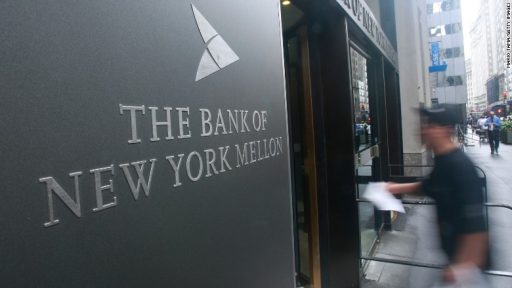- Home
- >
- Daily Accents
- >
- The bank rally might just be getting started

The bank rally might just be getting started

A sector that has gained 24 percent in barely seven weeks would seem primed for a pullback. But for banks, there looks to be room to run yet.
After trailing the market for much of the nearly eight-year bull run, financials only recently have become outperformers. Their massive runup since the Nov. 8 election has given the group about a 230 percent gain since the financial crisis lows in early 2009.
However, banks remain well-below their precrisis highs. And with an incoming administration expected to roll back some key regulations and interest rates on the rise, the momentum may be just starting to build.
"We believe the group still has room to run as rates move higher, the trading environment improves, modest deregulation decreases company-specific risks, and the U.S. sees better nominal growth aided by a strong U.S. consumer," analysts Brian Kleinhanzl and Michael Brown at Keefe, Bruyette & Woods wrote in a recent research note.
The trade is based on more than momentum or a relief rally.
KBW projects loan growth for universal banks to grow 4.9 percent and 5.1 percent, respectively, over the next two years and sees an improved trading climate that has begun in the fourth quarter and will continue.
More broadly, higher interest rates — KBW expects the FED to hike five times from now through 2018 — will boost margins and lead to earnings growth of 15.2 percent in 2017 and 14.6 percent in 2018. Revenues are expected to rise 4.7 percent in both years as well. Earnings for the financial sector are projected to increase 14.4 percent in the fourth quarter of 2016, according to FactSet.
Even with those solid fundamentals, the rally this year has been remarkable.
The KBW Nasdaq Bank Index (BKX) is up 47 percent since the late-June Brexit vote. The rally intensified since Republican Donald Trump captured the presidential election on Nov. 8.
Leaders have been Citizens Financial Group (CFG) (up. 35.3 percent as of the Tuesday market close), Zions Bancorp (ZION) (34.6 percent) and Bank of America (BAC) (33 percent). Even the laggards have done well. Of the 17 banks in the S&P 500, U.S. Bancorp (USB) has performed the worst post-election with a 15.7 percent gain.
Picking winners is important for investors heading into 2017. Wall Street strategists have muted expectations for market gains, though some have raised their S&P 500 price targets recently. Overall, though, they expect the index to gain just 4.2 percent, the least optimistic in 11 years, according to Bespoke Investment Group.
David Rosenberg, senior economist and strategist at Gluskin Sheff, is skeptical of the current rally but said Wednesday financials are "the only sector I see that does make some sense." He said that before the rally financials were "relatively inexpensive and are benefiting from the rise in market rates and widening net interest margins; any move to water down (banking reform) Dodd-Frank is merely icing on the cake."
In its 2017 outlook, Bespoke also pointed out that the sector is still "below its pre-financial crisis high, even after its epic post-election run. We expect the gains to continue at least in the first half of 2017."
KBW offers two words of caution: There are still risks to banks that the landscape ahead may not develop as planned, and that differing valuations raise the need for selectivity.
"We believe valuations are still reasonable at current prices but we argue that investors should be selective in how to position for the future and we are not recommending buying the group blindly," the analysts said.
KBW favors Bank of America, Bank of New York Mellon (BK), Goldman Sachs (GS) and JPMorgan Chase (JPM).
However, the real danger spots for the industry in 2017 probably are outside U.S. borders. Mohamed El-Erian, chief economic advisor at Allianz, said nonbank financials and European banks will present the biggest challenges.
"You shouldn't forget about the banks in Europe and in Italy in particular," El-Erian told CNBC. "That issue is not solved yet, and that's going to be important because this is going to be even more pressure on the euro zone, on the EU, on the" European Central Bank.
 Varchev Traders
Varchev Traders Read more:
If you think, we can improve that section,
please comment. Your oppinion is imortant for us.











